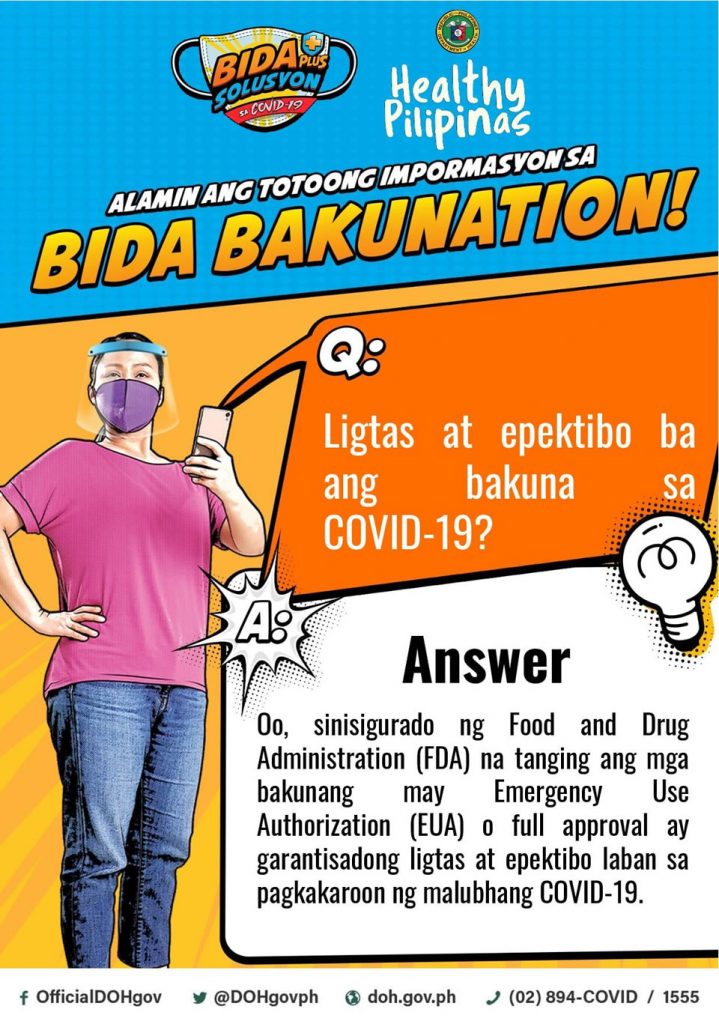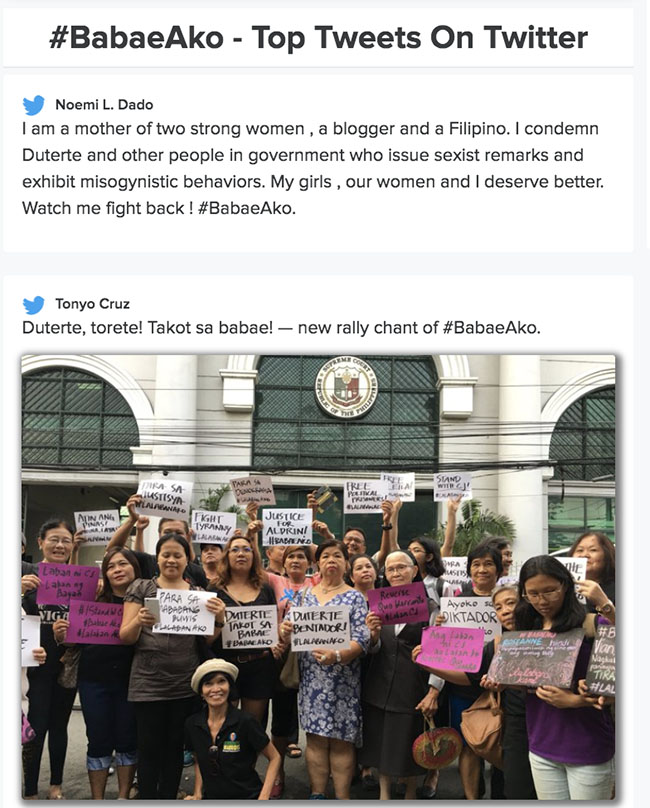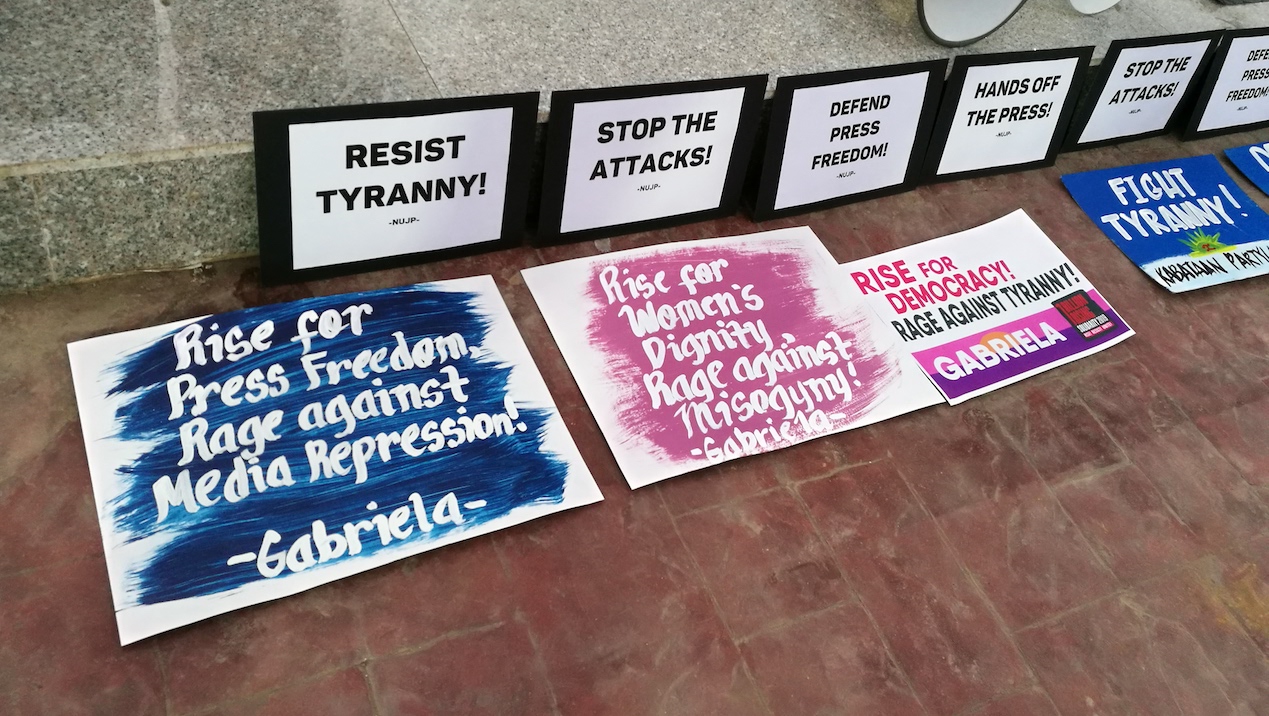Tackling vaccine hesitancy
Understanding Covid-19 and vaccines has been so far, the focus of my social media posts.
Recently, I finished a four-week online course in a forum called “Covering the Covid-19 vaccine: What journalists need to know.” Though I am not a reporter, social media practitioners like myself should strive to learn more about the vaccines and how to improve coverage of the largest global inoculation campaign in history. With sundry falsehood, I felt the need to learn from renowned experts and other scribes who are on the frontlines covering the pandemic. Reading stories of 1,500 participants from across 160 countries in said forum and in Facebook groups provided me further evidence on how to battle any misinformation that may sow confusion to my audience.
At the end of week four, our instructor and science journalist Maryn McKenna highlighted the contributions of nine participants about what happens next in countries and other possible scenarios. Mckenna cited my quote on vaccine hesitancy.
“While waiting for more vaccines to arrive in the Philippines, I decided to pursue stories on how to answer objections on getting jabs. I want to close the gap on inoculation hesitancy, which is at 60 percent. I take inspiration from the story of a company who conducted a massive multimedia, multilingual vaccination campaign in their firm. From an initial 40 percent willing to get vaccinated, it has now reached 93 percent.”
According to a Pulse Asia survey, the top three reasons for refusing vaccination were: uncertainty over its safety, unsureness of its effectiveness and not needing it against the virus. Another survey conducted by YouGov, an international research and analytics group, showed the Philippines ranked among the countries with lowest coronavirus vaccination interest out of 21 states included. Around 56 percent of Filipino respondents said they would get jabs while some have been inoculated.
The Department of Health’s Bida Bakunation! campaign addresses safety concerns, misinformation and other frequently asked questions regarding vaccines.

According to the Philippine News Agency, Cavite Fourth District Rep. Elpidio Barzaga Jr. called for a stronger information campaign to boost people’s confidence in any Covid-19 vaccination program by holding regular webinars to be aired live on government television channels and radio stations. Several local government units on Facebook have also created infographics in the local dialect.
While this information is an effective tool to understand vaccine safety and efficacy, it is also vital to talk to a doctor, a trusted friend or from someone who got vaccinated. When I got inoculated on April 13, I shared some photos in social networks without mention of any brand for I am endorsing the vaccination program itself. One afternoon, I received a phone call from a friend in Cebu, asking if he should get vaccinated. Knowing how limited stocks are in the Queen City of the South, I encouraged him to get jabbed. “I don’t like the brand,” he said with a tinge of skepticism. “Your product of choice won’t arrive yet on the local shore, but you will get protection the sooner you get inoculated,” I elucidated.
Considering the limitation of vaccine supply, the best one is the one available.
I stress the importance of the message of the World Health Organization getting vaccinated is safer than getting infected. An approach in tackling vaccine hesitancy is by debunking myths or hoaxes in my community through articles and discussion on how Covid-19 jabs work. Circulation of half-truths forwarded in Viber group chats add to confusion and indecision. There is more to discuss on closing the gaps on inoculation diffidence, so I started a weekly newsletter https://www.getrevue.co/profile/momblogger to share information from the course and authoritative sources. It also contains curated content on topics of vaccines, Covid-19 and fighting disinformation.
“Attaining herd immunity is dependent on the trust and confidence of the public in different brands of vaccines available in our archipelago,” said Ronald Ian Cruz, in our course forum.
Vaccines are a critical tool in the battle against Covid-19. Every vaccinated Filipino lessens the chance of transmission and advances the reopening of the economy, which is why we need everyone to be inoculated as soon as possible.
First published at Sunday Business & IT on May 2, 2021.



